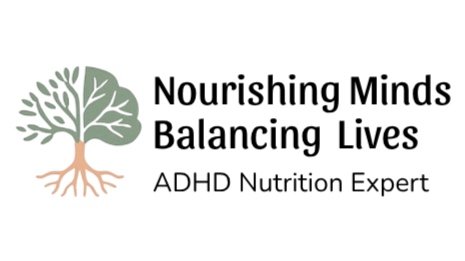Mastering Magnesium: Your Friendly Guide to Supplementation for ADHD
Mastering Magnesium: Your Friendly Guide to Supplementation for ADHD
Navigating the world of magnesium supplementation can feel like a daunting task, especially when you're looking to support someone with ADHD. As a registered dietitian, I often hear questions from clients about which types of magnesium are most effective and how to determine the right dosage. With so many options on the market, from powders to capsules, it can be overwhelming to decide which form of magnesium is best. In this friendly guide, I aim to demystify magnesium supplementation by exploring different types, ideal dosages, potential side effects, and tips for choosing reputable brands. Join me as we empower ourselves with the knowledge needed to make informed decisions for managing ADHD through nutrition. For more detailed information on magnesium and its role in health, check out this comprehensive fact sheet from the National Institutes of Health.
Understanding Magnesium Supplementation

Magnesium is a crucial mineral for our bodies, playing a vital role in numerous biochemical processes. When it comes to supplementation, especially for those with ADHD, understanding the different types and forms available is essential for making informed choices.
Types of Magnesium Available
Magnesium comes in various types, each with unique properties and benefits. The most common types include magnesium citrate, glycinate, oxide, and l-threonate.
Magnesium glycinate is known for its calming effects and is less likely to cause digestive issues. This makes it a popular choice for those with ADHD who also struggle with anxiety or sleep problems.
Magnesium l-threonate is a newer form that has shown promise in cognitive function and may be particularly beneficial for ADHD symptoms. It is said to cross the blood-brain barrier quickly for better absorption.
Magnesium oxide is less absorbable but contains a higher percentage of elemental magnesium. It's often used in larger doses for more severe deficiencies.
Magnesium citrate is highly absorbable and often used for its laxative effects. It's a good choice for those dealing with constipation.
Forms of Magnesium Explained
Magnesium supplements come in various forms, each with its own advantages and considerations. Understanding these can help you choose the most suitable option for your needs.
Capsules and tablets are the most common forms. They're convenient and allow for precise dosing. However, some people may find them difficult to swallow or may experience slower absorption.
Powders offer flexibility in dosing and can be easily mixed into drinks. They're often more rapidly absorbed than solid forms but may have a stronger taste.
Liquid magnesium supplements are another option, particularly useful for those who have difficulty swallowing pills. They can be easily added to beverages and are typically well-absorbed.
Topical magnesium, such as oils or lotions, is absorbed through the skin. While research on its effectiveness is limited, some people find it helpful for muscle relaxation and sleep.
Benefits and Side Effects

Magnesium supplementation can offer numerous benefits, particularly for individuals with ADHD. However, it's important to be aware of potential side effects and to use supplements responsibly under professional guidance.
Positive Effects on ADHD
Magnesium supplementation has shown promising results in managing ADHD symptoms. Research suggests that magnesium can help improve focus, reduce hyperactivity, and enhance overall cognitive function.
Studies have indicated that magnesium may help regulate neurotransmitters involved in attention and impulse control. This can lead to improved concentration and reduced restlessness in individuals with ADHD.
Magnesium also plays a role in reducing stress and anxiety, which are often comorbid with ADHD. By promoting relaxation, it may help individuals with ADHD manage their symptoms more effectively.
Some parents and individuals report noticeable improvements in behavior and academic performance after starting magnesium supplementation. However, it's important to note that results can vary, and magnesium should be used as part of a comprehensive ADHD management plan.
Positive Effects on Sleep
Magnesium's impact on sleep quality can be particularly beneficial for those with ADHD, as sleep disturbances are common in this population.
Magnesium helps regulate the neurotransmitter GABA, which promotes relaxation and sleep. This can lead to faster sleep onset and improved sleep quality.
The mineral also plays a role in regulating melatonin, the hormone responsible for our sleep-wake cycle. By supporting healthy melatonin production, magnesium can help establish a more consistent sleep pattern.
Research has shown that magnesium supplementation can increase sleep time, reduce nighttime awakenings, and improve overall sleep efficiency. This can be especially helpful for individuals with ADHD who struggle with insomnia or restless sleep.
Better sleep, in turn, can lead to improved daytime functioning, reduced irritability, and better symptom management for those with ADHD.
Potential Magnesium Side Effects
While magnesium is generally safe, it's important to be aware of potential side effects, especially when taking higher doses or certain forms of the supplement.
The most common side effects of magnesium supplementation are gastrointestinal in nature. These can include:
Diarrhea
Nausea
Stomach cramps
Vomiting
These effects are more likely to occur with magnesium oxide or citrate, which have stronger laxative properties. Magnesium glycinate is often better tolerated.
In rare cases, excessive magnesium intake can lead to more serious side effects such as irregular heartbeat, low blood pressure, or confusion. However, this is typically only a concern for those with kidney problems or those taking very high doses.
It's crucial to follow recommended dosages and consult with a healthcare provider before starting any new supplement regimen, especially if you have existing health conditions or are taking medications.
Signs that you are Deficient in Magnesium

Recognizing magnesium deficiency is crucial, as it can significantly impact overall health and exacerbate ADHD symptoms. Understanding who's at risk and what signs to look for can help in addressing this common nutritional gap.
Groups that are at risk of Defiency
Certain populations are more susceptible to magnesium deficiency due to various factors affecting absorption or increased needs.
Individuals with gastrointestinal disorders, such as Crohn's disease or celiac disease, may have difficulty absorbing magnesium from their diet. This puts them at higher risk of deficiency.
People with type 2 diabetes often have lower magnesium levels due to increased urinary loss of the mineral. Regular monitoring and supplementation may be necessary for this group.
Older adults are another at-risk group, as magnesium absorption tends to decrease with age. Additionally, many medications commonly prescribed to older adults can interfere with magnesium absorption.
Individuals with ADHD may be at higher risk of magnesium deficiency due to dietary factors or increased needs. This makes awareness and potential supplementation particularly important for this group.
Signs of magnesium deficiency
Recognizing the signs of magnesium deficiency is crucial for timely intervention. These symptoms can be subtle and often overlap with other conditions, making them easy to overlook.
Early signs of magnesium deficiency may include:
Fatigue and weakness
Muscle twitches and cramps
Irritability and mood changes
Difficulty concentrating
More severe deficiency can lead to:
Numbness and tingling
Seizures
Irregular heartbeat
Personality changes
For individuals with ADHD, magnesium deficiency may exacerbate symptoms such as hyperactivity, impulsivity, and inattention. It can also contribute to sleep disturbances and increased anxiety.
If you suspect a magnesium deficiency, it's important to consult with a healthcare provider. They can perform blood tests to check your magnesium levels and recommend appropriate supplementation if needed.
Magnesium Dosage Guidelines
Determining the right magnesium dosage is crucial for reaping its benefits while avoiding potential side effects. Guidelines can vary based on age, gender, and individual health conditions.
The Recommended Dietary Allowance (RDA) for magnesium varies by age and gender:
Age Group | Male | Female |
|---|---|---|
1-3 years | 80 mg | 80 mg |
4-8 years | 130 mg | 130 mg |
9-13 years | 240 mg | 240 mg |
14-18 years | 410 mg | 360 mg |
19+ years | 400-420 mg | 310-320 mg |
For individuals with ADHD, some studies have used higher doses, ranging from 200 mg to 600 mg daily. However, it's crucial to start with lower doses and gradually increase under professional guidance as doses over 350mg per day are more likely to have side effects.
Research suggests that the body absorbs magnesium more effectively when taken in smaller, more frequent doses throughout the day rather than one large dose.
Always consult with a healthcare provider before starting any new supplement regimen, especially for children or individuals with existing health conditions.

Choosing the Right Magnesium Brand
Selecting a high-quality magnesium supplement is crucial for ensuring safety and effectiveness. With numerous options available, it's important to know what to look for and how to compare different forms.
Tips for Selecting Quality Products
When choosing a magnesium supplement, consider the following factors to ensure you're getting a high-quality product:
Look for third-party testing: Choose brands that have their products tested by independent laboratories for purity and potency.
Check for certifications: Look for certifications from organizations like USP (United States Pharmacopeia) or NSF International, which indicate adherence to quality standards.
Consider the form of magnesium: Different forms have varying absorption rates and effects. For example, magnesium glycinate is often well-tolerated and may be better for those with sensitive stomachs.
Read the ingredient list: Avoid products with unnecessary fillers, artificial colors, preservatives, or allergens.
Research the brand's reputation: Look for companies with a history of producing high-quality supplements and positive customer reviews.
Remember, the cheapest option isn't always the best. Investing in a quality supplement can make a significant difference in its effectiveness and safety. Email connect@ADHDNutritionExpert.com for supplement recommendations and discounted Fullscript access.
Comparing Powder vs. Capsules
Choosing between powder and capsule forms of magnesium depends on personal preference and specific needs. Here's a comparison to help you decide:
Powders and Liquids:
Often more rapidly absorbed
Allow for flexible dosing
Can be mixed into drinks or food
May have a stronger taste
Convenient for those who have difficulty swallowing pills
Capsules:
Provide precise dosing
Convenient for on-the-go use
No taste issues
May be slower to absorb
Some people find them difficult to swallow
For individuals with ADHD, the choice between powder and capsules may depend on factors like sensory preferences, daily routine, and ease of consistent use.
Some studies suggest that powdered forms may be more readily absorbed, potentially leading to quicker effects. However, capsules can be more convenient for maintaining a consistent dosing schedule.
Ultimately, the best form is the one that you or your child will take consistently. Consider trying both forms to see which works best for your lifestyle and preferences.


